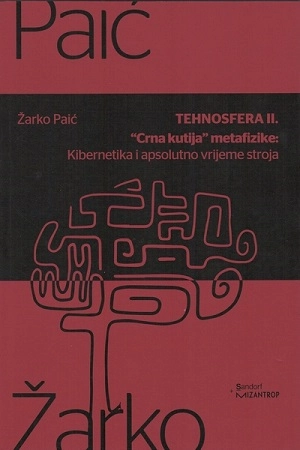
Tehnosfera II.
'Crna kutija metafizike': Kibernetika i apsolutno vrijeme stroja
2019.
Description
The starting point of Paić's theory of the world in a digital perspective marks a critique of the traditional approach to the history of technology within metaphysics. It is therefore not at all unusual that the author in "Technosphere II." to philosophically meticulously open the path of one's own reflection in the critical reading and interpretation of the most important thinkers of the 20th and 21st centuries who embarked on the adventure of building new terms for understanding the digital world of interactive communication. Almost all important thinkers are the subject of his in-depth analysis: Heidegger, Whitehead, Wittgenstein, Deleuze, Derrida, Bateson, Wiener, Flusser, Günther, Minsky, Simondon, Stiegler. For the first time, in our conditions, we are faced with a detailed and systematic reflection of the philosophy of science and cybernetics with regard to the achievements of posthumanism and transhumanism. The emphasis is on the connection between the theory of complexity, contingency, emergence and chaos with leading concepts of cybernetics such as information, feedback, control and communication. Paić deals extensively with theories of information and communication ranging from Wiener to quantum theory, Shannov's mathematical theory of communication with which the operating systems of the computer revolution of the 1960s were created, and the philosophical problem of the relationship between language and image in the work of Heidegger, Wittgenstein, Simondon, Whitehead and Stiegler. The reason for connecting physics and informatics with philosophy and anthropology and art is found in the changed essence of the world after the introduction of digital technology. Everything is organized in Whitehead's opinion with the concept of event, so it is of great importance that it appears for the first time in the Croatian language in "Tehnosphere II." a critical analysis of the concept of event and cosmic epoch, which will be taken up by Deleuze in his analyses. The book ends with the thematization of a radical cybernetic turn: the matter of thinking becomes the thinking of things as autonomous objects in the way of calculation, planning and construction of new events as temporary states.
Publisher:
Sandorf
Language:
Croatian
Format:
Paperback
Dimension:
Number Of Pages:
465